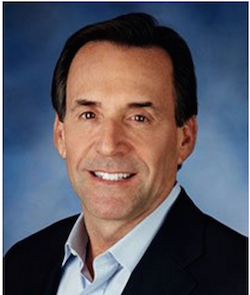
Finding a way to increase partnerships with health systems and payers to play a bigger part in the post-acute care continuum is the “Holy Grail” for the senior living industry, Larry Cohen, CEO of Dallas-based Capital Senior Living, told shareholders, analysts and others participating in an earnings call on Tuesday.
“That’s the Holy Grail, because if we’re successful and the industry is successful — all we have to do is increase the penetration rate of this industry by one percentage point, and if we do that, there would not be a vacant apartment in the entire United States,” he said in response to an analyst’s question about the company’s interest in such a course of action.
Cohen said that, coincidentally, he had had a conversation that morning about senior housing’s role in the post-acute care continuum.
“I think there’s a tremendous opportunity there,” he said. “I think it’s something that the industry has lagged behind. I’m hopeful that we will take a leadership position.”
Some hospital systems are “very focused on senior living right now,” Cohen added, and the cost savings that senior living communities can provide are “significant.”
The average monthly rent in a Capital Senior Living building, he noted, is $3,535, which he said is 60% of the average cost of living at home and receiving home healthcare services. The average cost of skilled nursing is $432 a day, Cohen added, and hospital care averages $1,800 a day.
“The opportunity for this industry to participate in this continuum, as a setting that has better outcomes at lower cost, is very, very dramatic,” Cohen said. “The challenge is getting the data. Because we are private-pay and don’t deal with [the Centers for Medicare & Medicaid Services], we don’t have the same data that other post-acute providers have.”
Capital Senior Living is working on gathering data, however, he said. Although Cohen stressed that the company is not a healthcare provider, it does partner with post-acute providers that care for residents in its buildings, such as Genesis, home healthcare and hospice companies and medical directors. Such relationships are producing promising results, he said.
“We just had a meeting today with our quality assurance committee, where we review a modified Barthel Index, which is the index that Genesis provides for our residents in our communities that measures independence,” Cohen said. “And in the Capital Senior Living communities is the highest measurement of all of Genesis therapy rehab around the country.”
Cohen’s comments came less than a week after Toledo, OH-based real estate investment trust Welltower announced a partnership with Johns Hopkins Medicine. Initially, the parties said, the collaboration will focus on initiatives involving quality outcomes in assisted living and memory care, educational programs for patients and caregivers, and the sharing of health and wellness and business expertise, best practices, research and information.
“Senior housing was completely invisible to hospital systems. Why? Because it’s outside the reimbursement framework,” Welltower CEO Tom DeRosa said during an earnings call on Feb. 22, the day the partnership was announced. “But increasingly, these systems need to see senior housing as part of effective healthcare delivery networks, because the people who live with us are the largest-risk population for those health systems. They are seeing how our sector can help them manage that risk.”



